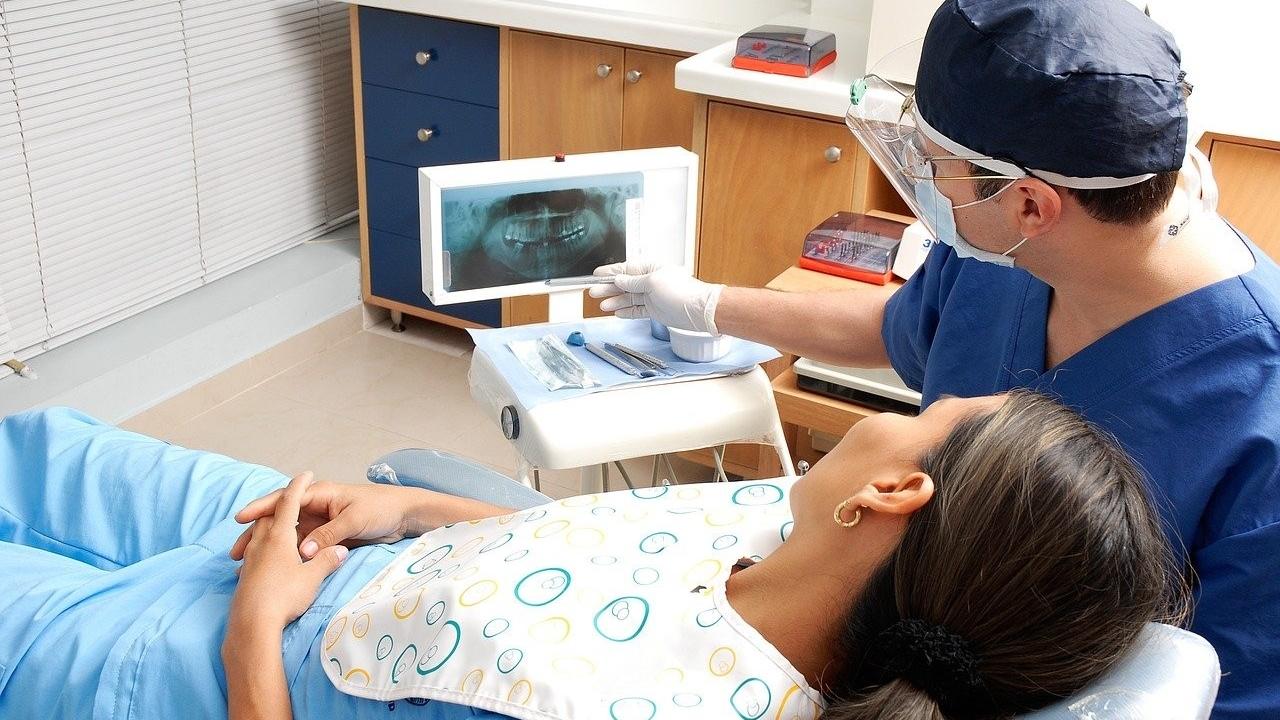The Dentists Academy Blog
The Parliamentary Review 2020

With all that’s been going on with the coronavirus pandemic, I never got around to sharing our trip over to London for the Parliamentary Review.
Dad and I were asked to participate in the 2020 Parliamentary Review and are delighted to represent our dental practices and online training Academy.
Love this photograph of Dad with his new best mate! :-)
Remember - worldwide Membership of The Dentists Academy is free and there’s a link at the bottom of this blog post if it’s of interest.
But before that, here’s a link to our article in the 2020 Parliamentary Review:
https://www.theparliamentaryreview.co.uk/organisations/dj-maguire-and-associates-dental-group
Warm Regards,
Leonard
P.S. If you’d like to see what all’s inside our online Academy, simply follow the link below:
https://www.thedentistsacademy.com/free-cv
Membership is totally free, and you’d be enjoying the knowledge and experience of over 10,000 like-minded, fellow dentists worldwide :-)
Building Rapport With Your Dental Patients

When consulting with your Dental Patients...
Consider specific areas of interest of your patients, such as:
- Recent holidays
- Family stories
- Pets
- Where they work
It’s important to focus on them, not you.
This helps to build rapport and trust in your relationship.
Remember this must be genuine and authentic – don’t fake it.
Make a note in their records, so when you next see them, you’ll be able to ask them:
- How their house move went
- Did they get nice weather for their wedding
- How their youngest child is getting on since starting school
Be inquisitive, but not invasive.
Remember, people don’t tend to complain about people they know, like and trust.
Warm Regards,
Leonard
Dr Leonard J Maguire
BDS LL.M MBA PG Dip Med. Ed. FDTFEd AFFMLM CMgr FCMI FICD MFDS RCSEd MFGDP MFFLM
Dentist. Author. Co-Founder
P.S - If you've not yet ordered your FREE copy of our latest hardback book 'Secrets of Successful Dentists (RRP £39) - click here
How to Communicate with Your Dental Patients

I’ve been studying various forms of communication lately, with an emphasis on “Asking Questions.” when dealing with dental patients
Here’s what I see as 3 of the most common mistakes when “Asking Questions”:
1. Asking more than one question at a time.
- Slow down.
- Break up complex information into chunks that are easier to understand.
- Be patient.
2. Asking the question and then giving the answer yourself.
- Prioritize information so that the most important parts come first.
- Take your time when asking questions of your patients.
- Repeat the question, or indeed their answer, if required.
3. Not observing patients when they answer your questions.
- Active listening involves maintaining eye contact, showing an interest in what they are saying by nodding, and asking further questions for clarification.
- Listening involves much more than just hearing the contents of the message.
- Remember to observe non-verbal communication signals, such as breathing rates, wrinkling of the f ...
How to Be Aware of the Blind Spots When Communicating With Your Dental Patients

Beware of the Blind Spots.
In this sense, a blind spot is an area of dentistry that we assume our patients understand – when in reality they don’t at all.
(This makes sense though – how would they understand which crown or restoration is best for them?)
Dentistry is our first language.
But this is not the case for our patients.
Think of what your patients are really interested in…
- Will it be sore?
- How long will it last?
- What will it look like?
- How much will it cost?
So, always try to avoid any ‘dental jargon’ when with your patients.
Remember…
If you want to impress someone, make it complicated.
If you want to help them, make it simple.
Warm Regards,
Leonard
Dr Leonard J Maguire
BDS LL.M MBA PG Dip Med. Ed. FDTFEd AFFMLM CMgr FCMI FICD MFDS RCSEd MFGDP MFFLM
Dentist. Author. Co-Founder
3 Ideas to Creating More Freedom in Your Dental Career

In general, most dentists don’t have enough choices in life.
Why?
They don’t have either the money or time for the lifestyle they want to live!
But how do you even define financial or time freedom?
Some people say it’s when passive income exceeds your expenses.
Grant Cardone refers to it as when passive income exceeds your ideal lifestyle income and you have money left over to reinvest to continue to create even more passive income.
What could your life look like if money weren’t an issue, if all your expenses were covered and you had money or time left over?
Here are 3 Ideas I use to create more freedom:
#1 Decide.
This seems easy to do but often the simple things are the easy things NOT to do.
Decide if you want financial or time freedom.
There are implications for the decisions you make.
When you want to get healthy, you need to make sacrifices, like going to the gym often and eating foods you may not love.
Financial or time freedom also means sacrifices.
Have ...
Work Smarter, Not Harder in Dentistry … in 7 Steps

Check out these common characteristics that appear in successful people.
Remember – these are ideas are simple, but often not easy to implement.
Pay attention to these 7 areas of your business and/or life to stay on track and on top.
- Start your day early
- Focus your mental energy, don’t multi-task.
- Be fearless when it comes to the great unknown.
- Business really does mean business.
- Set aside time to “work” on your business.
- Delegate responsibility where possible.
- Make a concerted effort to streamline your time.
At The Dentists Academy we focus on 2 things for dentists …
- Personal growth
- Business development
And all in terms of risk and opportunity.
In terms of personal growth and professional development.
If you want to significantly hike your income, Click here now.
To working smarter not harder,
Leonard
Dr Leonard J Maguire BDS LL.M MBA
Dentist. Author. Dento-Legal Adviser.
Eat Your Frog: How to Gain Complete Focus in Your Career in Dentistry

As you know, I seriously encourage forming good habits from the start of your career in Dentistry – both clinically, and non-clinically.
New habits are easier formed than having to change old ones.
So, this week I’m going to share an idea with you that I discovered some years ago.
Put simply, it helps you to get more done every day.
You may be familiar with the concept.
Here it is:
'Eat your frog first thing in the morning, before you do anything else.'

So, what is that frog?
My favourite definition is:
“Your biggest, most important task, the one you are most likely to procrastinate on if you don’t do something about it now. It is also the one task that can have the greatest positive impact on your life and results at the moment.”
As a fellow dentist, your day no doubt fills up very quickly.
I know the feeling.
Comes as part of the territory.
“To Do” lists just keep growing.
Don’t get me wrong...
I do believe there is a good, healthy and productive level of business.
...Who are Your Ambassadors within Your Dental Practice?

'Who are your ‘Practice Ambassadors?’
An interesting blog for you today!
Going back as far as 1967, Professor Johan Arndt from the Colombia Graduate School of Business identified ‘word of mouth’ as “one of the most important, if not the most important source of information for the consumer.”
No doubt about it...
As time marches on, ‘word of mouth’ only becomes more influential with patient referrals.
With so much information available on the internet – some good, some not so good, access has resulted in some ‘official’ marketing messages, being regarded as less credible.
As a result...
Some of these, albeit professional marketing companies can be deemed less influential than ever.
Add this to complaints and patient expectations being at an all-time high within the profession, and we see trust being questioned more than ever.
As a direct effect...
People now use their family, friends and work colleagues for advice and information – as they are people they trust.
This applies...
What should be your goals for your dental treatment plan discussions be?

This week I’m going to share an idea that, as it did for me, will help to remove any clouds from your thoughts process when thinking about “rejection”.
In this area, we’re discussing rejection in terms of meaning “your patient did not choose your preferred treatment option recommended”.
In the UK, so many amalgams restorations are still being placed when composite would often be a much better option.
So, either, the option of composite is not being discussed (which I doubt).
Or it is not always being compared to amalgam in a meaningful way (much more likely).
Consider the following concept:
“Can Control vs. Can’t Control”
Either you are thinking about things you can control and doing something about them, or you are thinking about things you can’t control and worrying for nothing.
You can’t be here and there at the same time.
I’ll ask you to consider this...
“What’s the goal of discussing a particular treatment plan with your patient?”
You see, it makes no sense to set ...
What Problems Do You Solve For Your Dental Patients?

Our routine days often involve problems with Dentistry
Problems get our attention.
Your patients are, at times, presenting with significant problems.
If you want to get their attention, it’s not enough to talk about solutions.
Everyone talks about solutions.
But solutions don’t get attention.
Problems do.
Example:
And I’ve been guilty of this in the past as well…
How many times to we race into solutions?
Because we’re inherently problem solvers – wanting to get stuck in and fix things.
Discussing types of crowns…
How to fill a space etc…
But really, we must be certain our patient fully understands their problem – and its significance.
The way to get your patient’s attention is NOT by talking about what your treatment does initially.
That’s the way to sound like everyone else.
Talk about the real problem as they perceive it, as they talk about it and you’ll get their attention.
Problems also have two components:
1. Logical part
2. Emotional part
Example:
Imagi...
